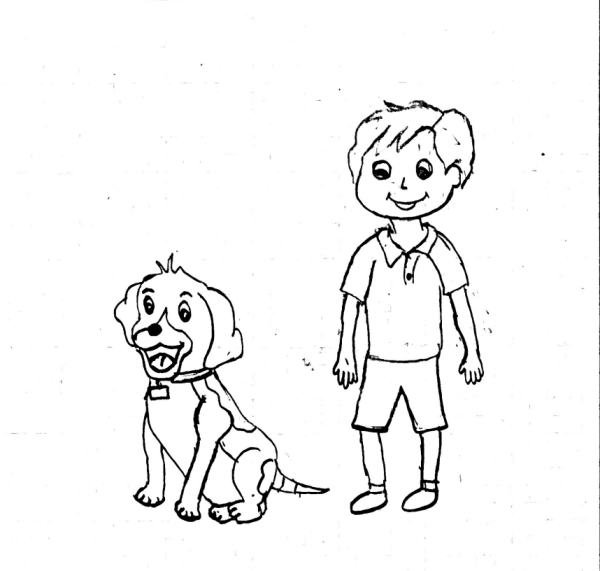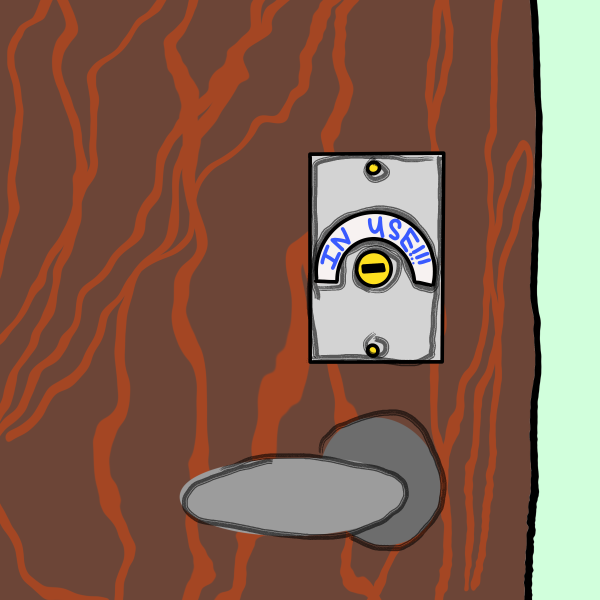Grumbling about kids these days
Social media is a noisy forum.

April 23, 2017
You are standing in the Anderson Starbucks line- waiting to order a venti triple-chocolate frosted butterscotch latte with a sprinkling of kale shavings-when you glance at the busy hands of the person before you in line. It is a familiar sight: their thumbs work over a phone screen, “liking” social media posts and stiff with carpal tunnel syndrome. Their head is bowed. They idle over their own profile page, scrutinizing the flaws in their photos and indulging in glamor shots.
Your lips purse. Later, in the security of your room, you take six different selfies before settling on one that accentuates your better features. You slap a filter over it, post it to Facebook, Instagram and Twitter, and wait for the likes to light up your phone in an endless stream of notifications.
This behavior feels familiar, no? I admit I am a grump, but this habit is symptomatic of a vain disregard for social media output.
Walk about Anderson’s second floor during lunch hours on a Monday. Notice the phones. How many students stare down into them instead of facing a friend at their table? How many are scrolling through feeds even as they half-heartedly listen to their friends talk? With research showing links between social media usage and depression and anxiety, it is no wonder that depression among college students is at an all-time high.
Social media is a Darwinist democracy. The sheer amount of media available for consumption necessitates brief attention and swift judgment. Media is approved or disapproved on the basis of how provocative it is-a tribal and brutal practice. Users are affirmed their place within this digital village by appealing to the collective. But the collective is a fickle bunch, and it seems users are willing to lay bare their uninhibited selves for the collective’s limited judgement.
Users air their baggage to a forum they believe is receptive to their problems. All rants and raves are fair game. Political diatribes and intimate problems-share it all. Every half-baked selfie with a smile is greeted with gushing praise. Every righteous essay is received with virtual applause. Every shared clickbait video clips the attention span shorter.
The user strives to not be neglected by the village, so they output, always output for affirmation. They throw their words around carelessly, operating under the neoliberal notion that more output is better output. But a person who wastes their words does not value their power. Social media has discarded the notion that it is wiser to listen than to speak. Now it is wiser to speak to sell one’s online persona—a mainline to one’s own personal brand of digital nonsense.
Content produced for social media is etched into a stone tablet. There are no true redactions in the digital world. Data collection assures this, therefore it would seem prudent to be conservative with what one posts to social media so that one’s digital persona is not permanently defined by a surfeit of white noise. This viewpoint excludes a bombardment of selfies or state-of-mental-health posts. The needs implicit in posts like those are better serviced by resources beyond the Facebook feed, like religious leaders or psychiatric professionals or loved ones.
The reality-TV ethic has seized hold of our communication: there can only be one star. Social media has spawned a generation of tortured performers who compete for validation in virtual echo chambers, and shame-humility’s bedfellow-is absent from the digital landscape.
Get off the feeds. Their mere existence should not be encouragement to clutter them with your psyche in an information blitzkrieg. Measure your output carefully. Or if you can help it, do not contribute to the cacophony. Do not waste your words. The noise is making us all sick.





